Egg Crate Function
Mathematical Definition
\[f(x,y)=x^2 + y^2 + 25(sin^2(x) + sin^2(y))\]Plots
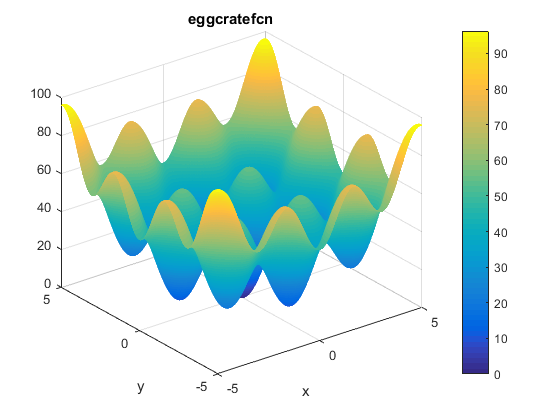
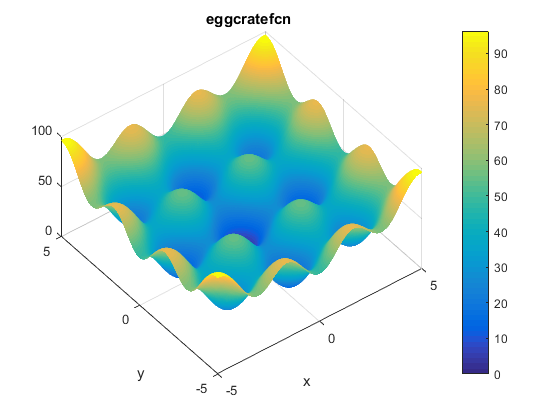
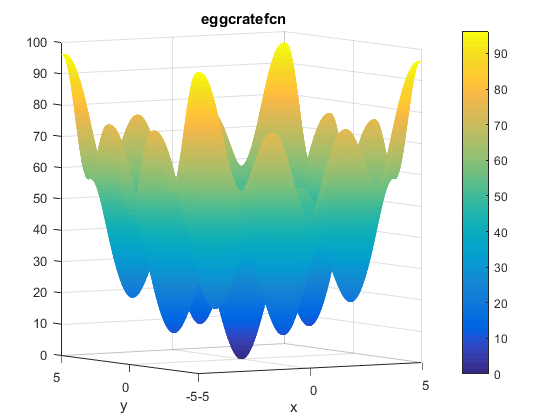
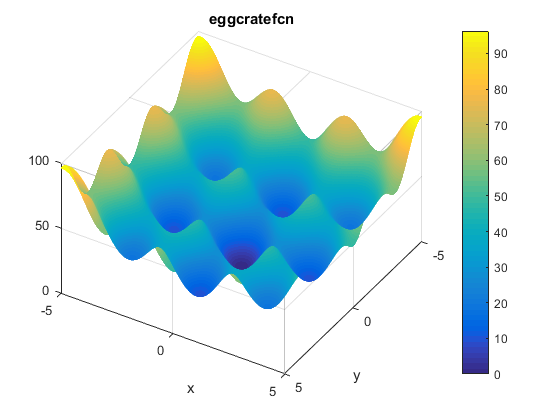
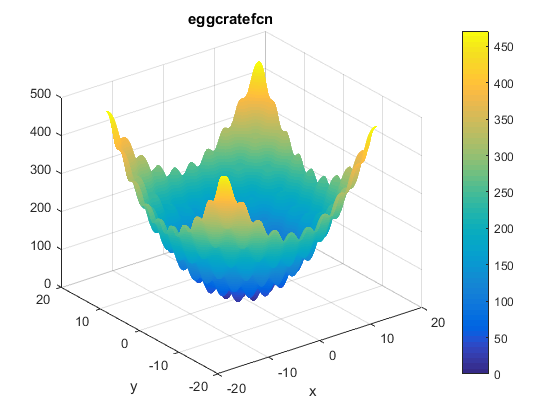
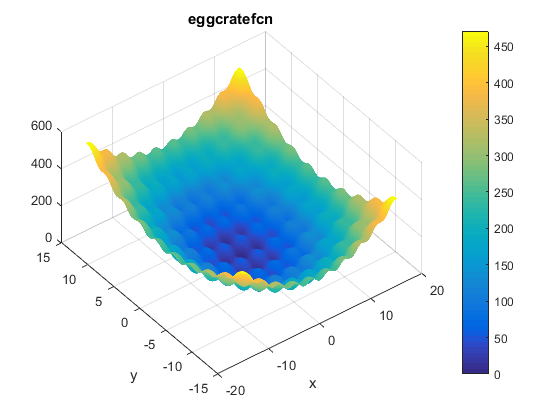
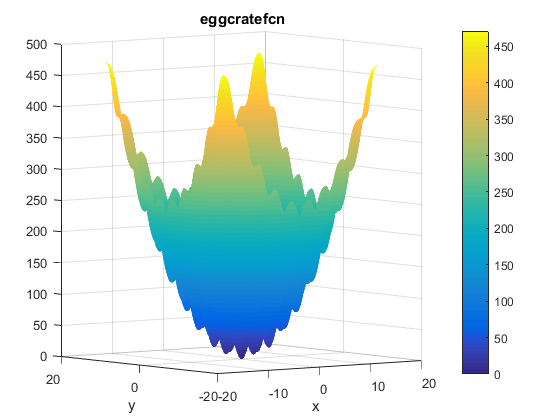
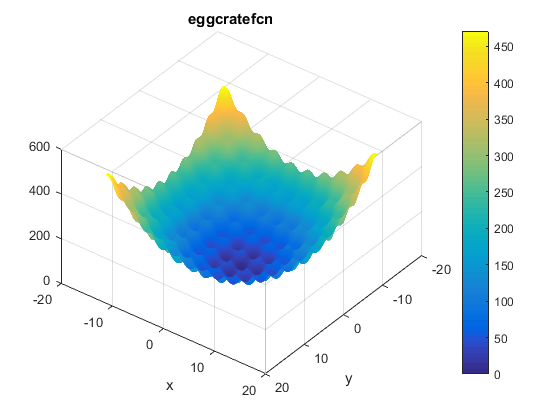
Two contours of the function are presented below:
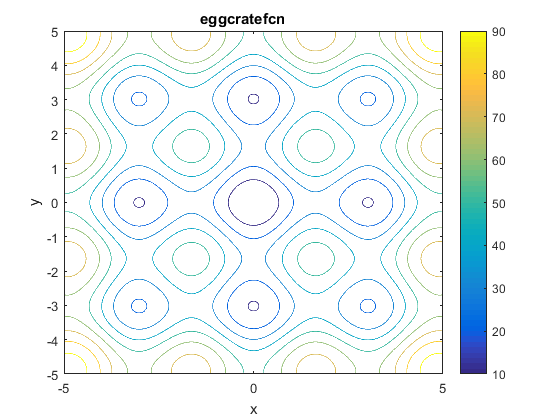
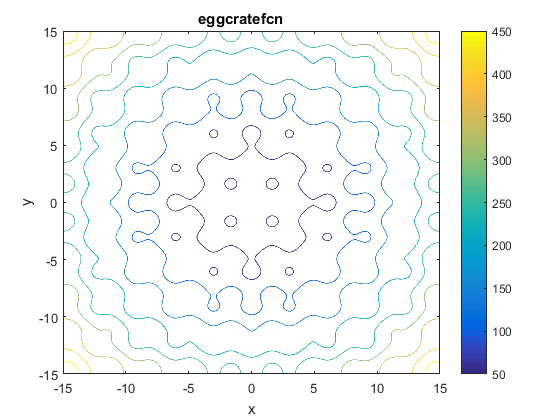
Description and Features
- The function is continuous.
- The function is not convex.
- The function is defined on 2-dimensional space.
- The function is multimodal.
- The function is differentiable.
- The function is separable.
Input Domain
The function can be defined on any input domain but it is usually evaluated on $x_i \in [-5, 5]$ for $i=1, 2$.
Global Minima
The global minimum $f(\textbf{x}^{\ast})=0$ is located at $\mathbf{x^\ast}=(0, 0)$.
Implementation
Python
For Python, the function is implemented in the benchmarkfcns package, which can be installed from command line with pip install benchmarkfcns.
from benchmarkfcns import eggcrate
print(eggcrate([[0, 0],
[1, 1]]))MATLAB
An implementation of the Egg Crate Function with MATLAB is provided below.
% Computes the value of the Egg Crate function.
% SCORES = EGGCRATEFCN(X) computes the value of the Egg Crate
% function at point X. EGGCRATEFCN accepts a matrix of size M-by-2 and
% returns a vetor SCORES of size M-by-1 in which each row contains the
% function value for the corresponding row of X.
%
% Author: Mazhar Ansari Ardeh
% Please forward any comments or bug reports to mazhar.ansari.ardeh at
% Google's e-mail service or feel free to kindly modify the repository.
function scores = eggcratefcn(x)
n = size(x, 2);
assert(n == 2, 'The Egg Crate function is defined only on the 2-D space.')
X = x(:, 1);
Y = x(:, 2);
scores = X.^2 + Y.^2 + (25 * (sin(X).^2 + sin(Y).^2));
end The function can be represented in Latex as follows:
f(x,y)=x^2 + y^2 + 25(sin^2(x) + sin^2(y))References:
- Momin Jamil and Xin-She Yang, A literature survey of benchmark functions for global optimization problems, Int. Journal of Mathematical Modelling and Numerical Optimisation}, Vol. 4, No. 2, pp. 150–194 (2013), arXiv:1308.4008
- http://al-roomi.org/benchmarks/unconstrained/2-dimensions/122-egg-crate-function
- Chawdhry, P. K., Roy, R., & Pant, R. K. (2012). Soft Computing in Engineering Design and Manufacturing. London: Springer Science & Business Media.
- Yang, X.S. (2008). Nature-Inspired Metaheuristic Algorithms, Luniver Press.